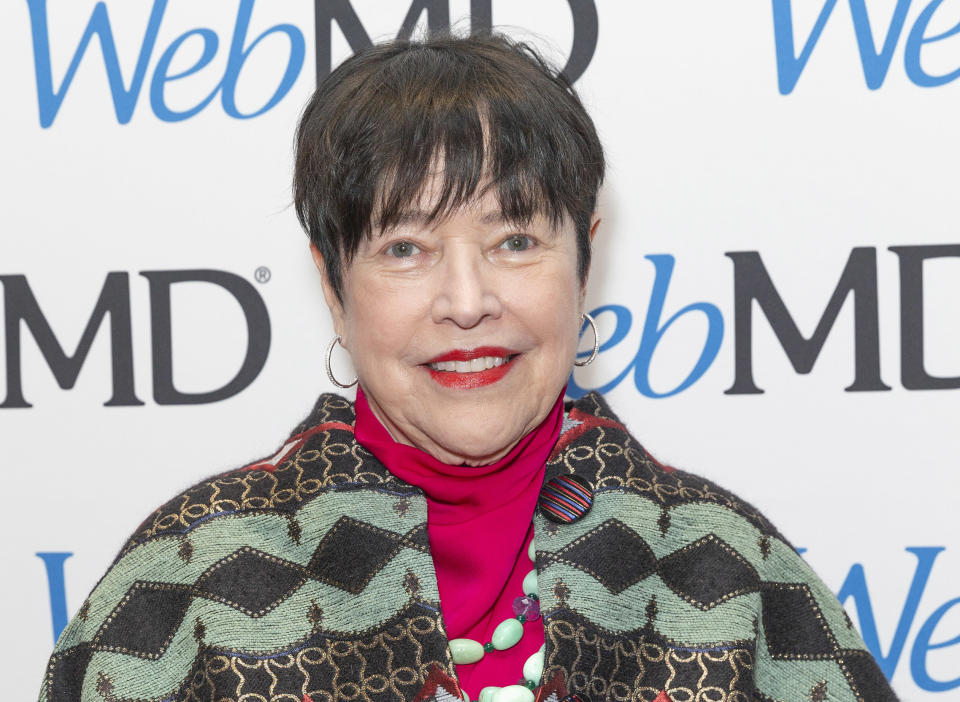Kathy Bates on surviving cancer twice: ‘When you see what you’re afraid of, you can face it’
Kathy Bates realized at a young age that breast cancer runs in her family and felt that it was only a matter of time until the cancer got around to her.
“The first time I heard about breast cancer was when I heard my Aunt Lee’s voice on the phone — I could hear her voice break as she said, ‘I have breast cancer,’” Bates shares with Yahoo Lifestyle.
Later, in the 1970s, Bates’ mother developed the disease, and ended up having a radical mastectomy. “I knew that at some point I would get breast cancer,” the actress says.
However, in 2003, Bates was diagnosed with ovarian cancer. “That was a real surprise to me,” she says. Bates didn’t know at the time that a family history of breast cancer is also linked to an increased risk of ovarian cancer, according to the American Cancer Society.
She adds: “Ovarian cancer is really hard to diagnose.”
During a gynecological exam, Bates’ doctor discovered a mass — it was stage 1 ovarian cancer. “It was about to attach itself to my colon, which meant it would become a stage 3,” she says. Bates had nine rounds of chemotherapy, which “knocked the stuffing out of me.”
Despite being an outspoken person, Bates stayed private about coping with cancer, which took a psychological toll on her. “I’m very open and direct so it was hard for me not to talk to people about it. But at the same time I withdrew from all of the activities that I had in my life,” she shares. “I don’t think I really came out about being a cancer survivor until I developed breast cancer in 2012.”

Around that time, she hadn’t been feeling well and, worried that this might be ovarian cancer returning, Bates got an MRI. The test revealed that she had a tumor in her left breast. “Breast cancer was much more difficult for me than the ovarian,” she says. “Obviously, losing one’s breast on the outside of the body is much more noticeable. And I was in a lot of pain, which I wasn’t with ovarian.”
But that wasn’t her only challenge. Bates also developed lymphedema — painful swelling caused by a buildup of lymph fluid in the fatty tissues under the skin, often in the arms or legs — which is a complication some face after cancer treatment. The condition is estimated to affect upwards of 10 million Americans.
“It’s a souvenir of cancer,” the 70-year-old actress says. “So the doctors remove lymph nodes to keep the cancer from spreading. If the lymph nodes have been damaged or traumatized in any way, you’re at risk for lymphedema. [It causes] pain, swelling, you tend to isolate. So it’s psychologically so damaging.”
She adds: “It was almost worse than having the cancer.”
Bates points out that medical students don’t spend much time learning about the health condition. “Doctors, in four years of medical school, will spend only 15-30 minutes on the lymphatic system,” she says.
So to help raise awareness — particularly March 6, which is World Lymphedema Day — Bates started working with the Lymphatic Education and Research Network four years ago. She focused on educating people and wanted “to spread the word so that people know that they’re not alone.” Bates says that it’s been “exciting” to see what scientists are working on regarding lymphedema research and that “it doesn’t seem so insurmountable.”
It’s now been 16 years since Bates, who stars in the new film, “The Highwaymen,” premiering on Netflix March 29, was diagnosed with ovarian cancer. “I think it’s made me stronger,” she says. “So I’m one of the lucky ones.”
Read more from Yahoo Lifestyle:
Follow us on Instagram, Facebook, and Twitter for nonstop inspiration delivered fresh to your feed, every day.

